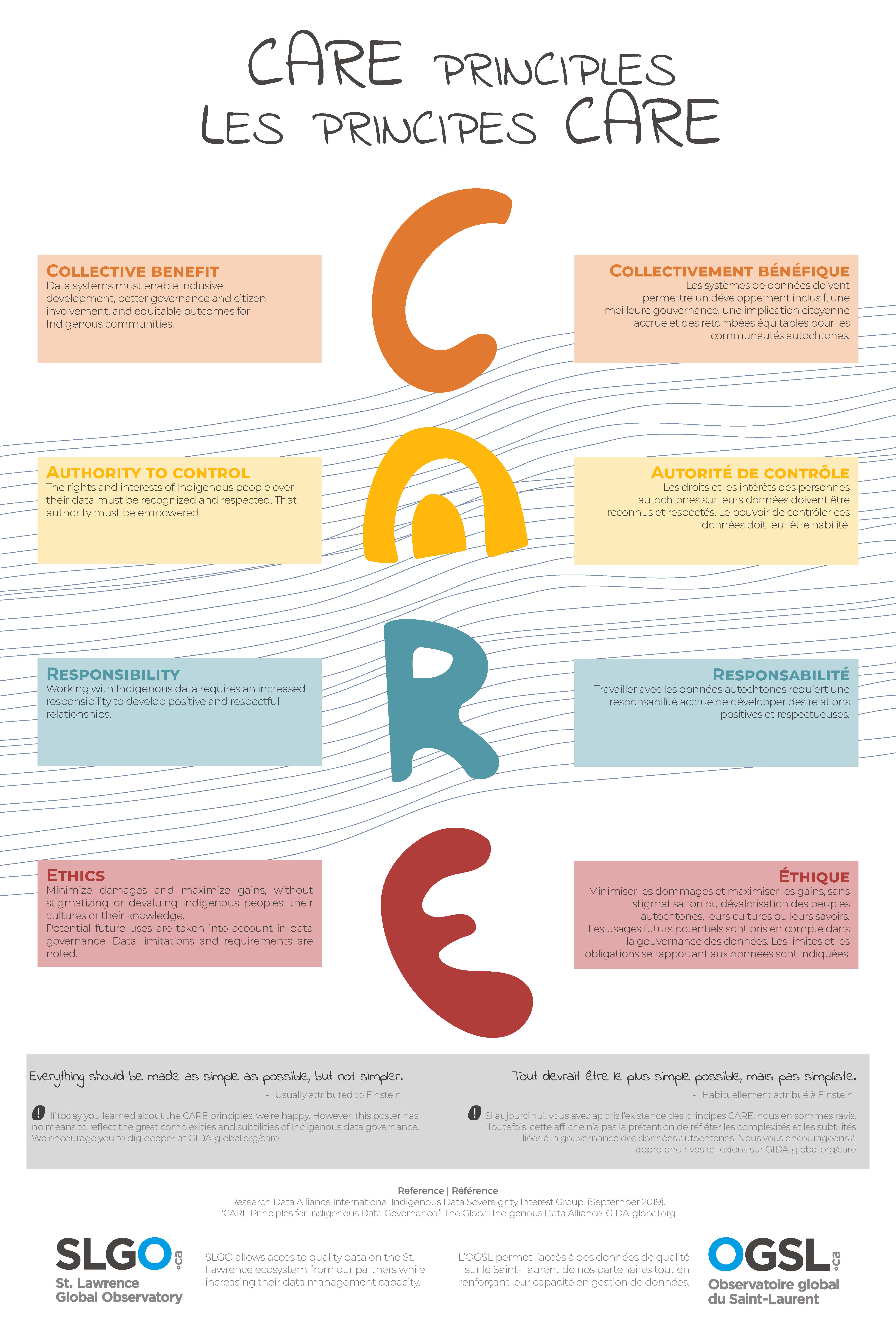CARE Principles
Historically plagued with issues of inequality and exploitation related to the capture of data about their communities and territories, Indigenous Peoples insist on the need to integrate their knowledge and approaches into data practices and policies. This becomes even more important as the volume and willingness to reuse data increases. Faced with a growing desire to make data open, Indigenous Peoples are articulating their rights and interests in data to reclaim its control (Russo Carroll et al. (2020), 2). These elements are expressed in the CARE principles.

Download the free printable poster of FAIR principles here:
(Optimal print size: 24″x26″)
Collective Benefit
Data systems must enable inclusive development, better governance and citizen involvement, and equitable outcomes for Indigenous communities.
Authority to Control
The rights and interests of Indigenous people over their data must be recognized and respected. That authority must be empowered.
Responsibility
Working with Indigenous data requires an increased responsibility to develop positive and respectful relationships.
Ethics
Minimize damages and maximize gains, without stigmatizing or devaluing indigenous peoples, their cultures or their knowledge.
Potential future uses are taken into account in data governance. Data limitations and requirements are noted.
Sources :
- CARE Principles for Indigenous Data Governance
- Carroll SR, Garba I, Figueroa-Rodríguez OL, Holbrook J, Lovett R, Materechera S, et al.. The CARE Principles for Indigenous Data Governance. Data Science Journal. 2020;19(1):43. DOI: http://doi.org/10.5334/dsj-2020-043
- Carroll, S.R., Herczog, E., Hudson, M. et al. Operationalizing the CARE and FAIR Principles for Indigenous data futures. Sci Data 8, 108 (2021). https://doi.org/10.1038/s41597-021-00892-0


